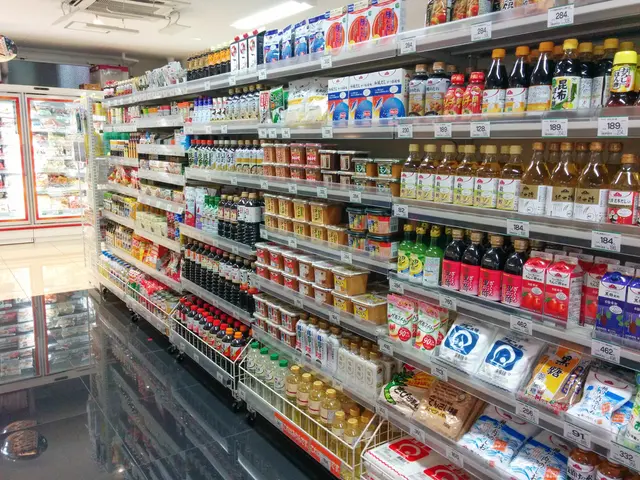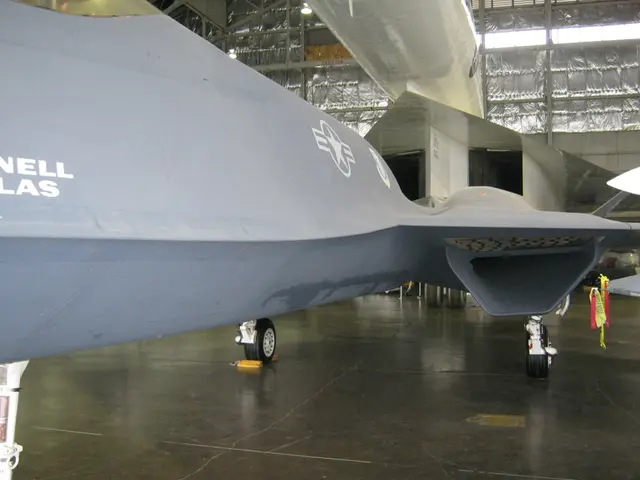US-China Tariff Showdown in Geneva: A Crucial Step Toward Historical Economic Compromise
U.S. and China set to initiate deliberations on tariffs in Geneva - U.S. and China to Hold Inaugural Customs Dialogue in Geneva
Get ready for fireworks in the heart of Switzerland as the US and China prepare for a high-stakes conference on trade tariffs. Treasury Secretary Scott Bessent and US Trade Representative Jamieson Greer are set to square off against Chinese bigwigs, with Vice-Premier He Lifeng flying in for the events.
The talks are slated to take place in the international city of Geneva, with authorities from both nations confirming the meeting will happen "soon." Swiss President and Finance Minister Karin Keller-Sutter is also expected to hobnob with Bessent during this time.
China has responded positively to the US' overture, with officials indicating a willingness to exchange thoughts on tariffs and related matters. Beijing has reviewed US communiqués with meticulous care, a move that suggests the Middle Kingdom won't back down easily. The Ministry of Commerce, however, has made it clear that any discourse must happen on an equal footing, noting that dialogue can only be productive if the US addresses the negative impact of its tariff actions and rectifies its questionable practices.
According to Bessent, the initial focus of the discussions will center on pinpointing the topics of discussion. The Treasury Secretary stressed the need for de-escalation before progress can be made, admitting that a major trade agreement isn't the immediate objective. Talks are slated for this weekend and Sunday.
The trade spat between the world's largest economies has been raging since April, with President Trump imposing additional tariffs of up to 145% on Chinese imports. Beijing has countered with demands for tariffs of up to 125% on US imports. Trump has vacillated on his claims about whether talks with China are happening, leaving everyone wondering what will happen next.
Key Details and Potential Outcomes
Background
- Tensions: Ongoing trade tensions have prompted both economies to grapple with economic strife. The US and China have been working hard to stave off the worst impacts of tariffs.
- Stimulus: In response, China has been rolling out economic stimulus measures, including easing credit, to bolster its exporters prior to the talks.
The Main Event: Potential Outcomes
- Tariff Reduction: Lower tariffs could benefit both economies by stimulating trade and boosting consumer and business demand. The US has shown a willingness to negotiate lower rates, but it's unclear if China will be open to compromise.
- Economic Relief: Reducing tariffs could provide temporary relief for both economies, but the challenges go deeper than just tariffs. Broader issues like demand and fiscal support will need to be tackled.
- Political Ramifications: The success of these talks could have significant political implications for both nations, with China vowing not to cave in to pressure or coercion, while the US seeks a mutually beneficial agreement.
- Future Relations: A successful agreement has the potential to set the stage for improved economic cooperation and ease tensions between the two global powers.
These talks promise to be a pivotal moment in the complex relationship between the US and China. Only time will tell if these arch rivals can agree on a solution that benefits everyone involved.
[1] Source: Enrichment Data
- The US-China trade tariff talks in Geneva, involving Treasury Secretary Scott Bessent and US Trade Representative Jamieson Greer, along with Chinese officials, promise to be a significant step towards a potential historic economic compromise.
- Despite the positive response from China, the Ministry of Commerce has made it clear that any discussion must occur on equal terms, with the US addressing the negative impacts of tariffs and rectifying questionable practices.
- Initial discussions will focus on identifying the topics of discussion, with Treasury Secretary Bessent emphasizing the need for de-escalation before progress can be made.
- The ongoing trade tensions between the world's largest economies have led to economic strife for both nations, necessitating the rollout of economic stimulus measures by China to support its exporters.
- These talks carry potential outcomes such as reduced tariffs to stimulate trade and boost demand, temporary economic relief, significant political implications, and the potential for improved economic cooperation and eased tensions between the two global powers.








